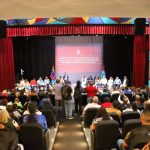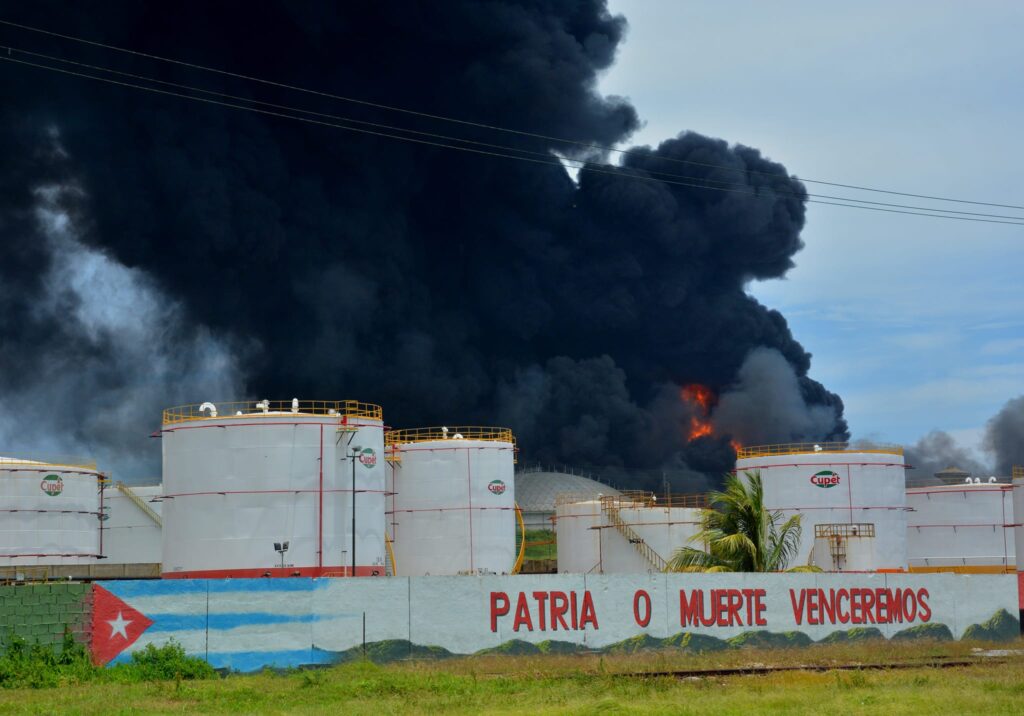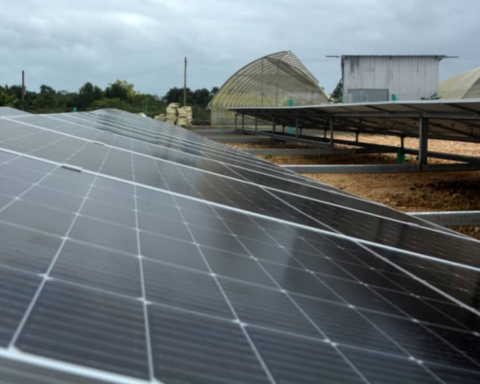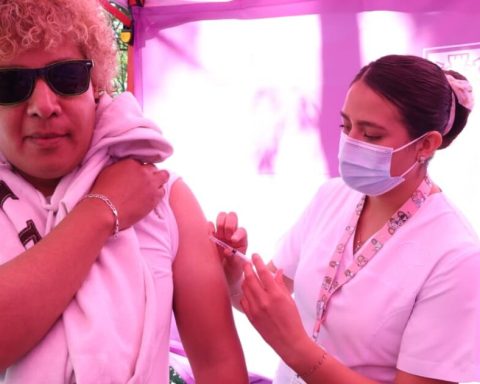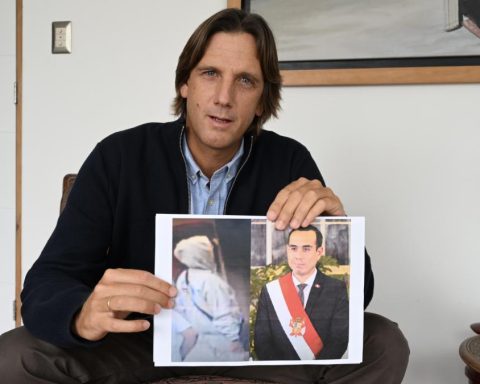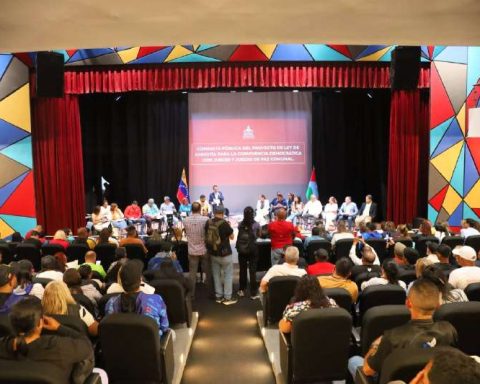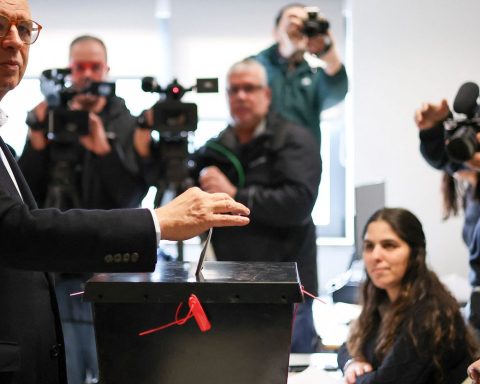The senator for the Atacama region, former Minister of Education and former presidential candidate of the fleeting electoral pact Constituent Unit, Yasna Provoste, confronts the internal crisis faced by the party she has been a member of since she was a teenager: the Christian Democracy (DC), and of which she is part of the board chaired by Felipe Delpin. Championed by the Approval, she believes that the road to a new Constitution is the most important challenge facing our country, and that it must unite the political wills of the different parties, ruling out the possibility of a “friendly dissolution” of the community, as It was raised a few weeks ago by the also Falangist senator, Francisco Huenchumilla.
In addition, the parliamentarian referred to the dissenting voices of some militants of the DC, who contravening the institutional position of the party, demonstrated, first requesting “freedom of action” in view of the Plebiscite of September 4, and who later have shown their stance in favor of rejection. Among this group are former President Eduardo Frei, senators Ximena Rincón and Matías Walker, as well as other historical faces of the phalanx, such as Belisario Velasco and Ricardo Hormazábal. A situation of internal division that increased after the national board decided, in a majority way, to lean towards Approval, revealing conflicts that could hinder a harmonious collective spirit in the face of the political challenges to come.
In that sense, Provoste ruled out that the decision to join the I Approve option is an attempt by the current DC board of directors to build bridges with the Government, considering that the phalanx offers something that could be attractive to the Executive: political experience and experience in the action of governing, both in the former Concertación and in the former Nueva Mayoría. In this regard, the former presidential candidate said that she is not thinking about the hypothetical possibility of assuming a ministry, in case President Gabriel Boric so requires it, since she assures that she only concentrates on fulfilling her task as a senator. . However, his name has appeared as one of the letters for a possible cabinet change, especially in portfolios such as the General Secretariat of the Presidency and the Ministry of the Interior and Public Security, where his ministers, Giorgio Jackson and Izkia Siches, appear strongly questioned, after a string of unforced errors.
-What do you think have been the main errors – political and communicational – of the Government, in this first stage of management? How do you think a party like the DC could contribute in that sense?
-Today the DC is collaborating with the most important task facing our country, which is to make every effort so that in the Plebiscite of September 4, we have an important victory for the Approval. And I would hope that the Government understands that, because on the one hand we listen to the President of the Republic who says that we should not deviate from what is central and that we have to be able to see everything that unites us, and the next day his ministers do everything otherwise. We saw it when on April 7 the President announced the freezing of public transport fares, and then the Minister of Transport did the opposite; or when the President says that we are going to support families in the face of the inflationary crisis, and his Minister of Energy proposes the opposite; or recently, when the President says that we must move towards a unity speech, and Minister Jackson comes out to disqualify his allies.
-In that sense, would leaning towards Approval be a signal in search of rapprochement with the Government? What do you say about those who believe that it is a “desperate” decision that seeks to avoid the political insignificance of the DC?
-The decision made by the DC only makes it thinking about the country. The Government is currently a minority, and needs the support of many to be able to offer governability, and President Boric knows it. But I hope that his political team understands it too, and in any case we are guided by our analysis of reality and by the defense of our proposals, and very sincerely, we do not need to enter the Government to remain consistent with our proposals. The relevance of the DC has nothing to do with being close, inside or outside the Government, because we are an intractable opposition that has always been willing to collaborate, to build a majority for the changes that the country demands.
Today, what we also hope for is that the Government can recover the sense of urgency to govern and to act accordingly. And more than entering the Government, what the DC is interested in is that we enter into a logic of facing the great problems that affect citizens today: the rise in the cost of living, the repeated rises in the price of fuel , and the insecurity that affects people every day. After the Plebiscite, many important agreements will be required, and the DC has an indispensable role to play so that Chile does well, and that is our purpose.
-What would you respond to a call from President Boric to join the cabinet? Have you considered that option?
-I am a senator for the Atacama region until 2026, which is the date of dissolution of the Senate, in case of winning the Approval. I must say clearly that I never have my eyes set on anything else, where the first thing we have to be able to do is win on September 4. When I was a deputy, I wasn’t thinking that I was going to be a candidate for the Senate, and when I entered DC-as a teenager-I didn’t think that I was going to become a senator of the Republic either. Therefore, it is not something that is part of my concerns, doing one thing and looking at another. Today we have only one purpose, which is to do things well to win this September 4 with the Approval.
– Do you think that this decision regarding the Plebiscite sharpens the internal division in the party? What could influence the DC institutionally leaning towards Approval?
-I think that the DC is not divided, but that it is decided by the Approval. We have dissenting voices, but we have democratically resolved our institutional option, and those who lost know it, and the situation we find ourselves in is not surprising, because we are in politics not to remain silent, but to take positions in favor of the large majorities. We are very aware of the role that we have to play, and we could not play at being neutral or decree freedom of action, which was favorable to the Rejection. And the proof of this is that all those who, before the meeting, called for freedom of action, have demonstrated against the Approval, so we are a voice that wanted to be heard at a time when the country has to make a decision. historical. The right is for Rejection, the left for Approval, but neither of the two options clearly wins, and the DC wants to be a relevant actor, helping to tip the balance in favor of a better democracy.
-How is it possible to coexist with some militants who have decided to go their own way, contravening the decision of the party? How much does it affect an internal relationship that was already worn out?
-The DC is not a club. It is a community governed by principles and values, which we want to see present in our country, and a position has already been taken through its highest body, which is the national board and which resulted in 64% of its votes in favor of Approving the new Constitution. And that is the institutional position of the DC, because one enters a party respecting the established principles and the collective decisions of its highest bodies, not following one’s own path or a personal decision. And I believe that the most important thing is that we must be contributors to an environment of peace and justice, never forgetting our principles, which also include our doctrinal foundations, where solidarity and human dignity are at the center, and that is what represents this new Constitution. And that is why perhaps some do not like the decision we have made, but we have to be able to make it known that today we are not in politics to remain silent, but to make decisions in favor of the great majority.
-A few weeks ago, Senator Huenchumilla pointed out that the situation in DC was unsustainable and that only the path of “peaceful dissolution” remained. Do you agree with that diagnosis? What can the party do to resolve internal conflicts and try to return to being a relevant political actor?
-What allows a party to survive and grow is its ability to make decisions, when it costs, but when it is essential. In any case, I read the interview with Senator Francisco Huenchumilla very carefully, and what I understood is that this peaceful dissolution was the only thing that remained if as a party we remained undecided in relation to the Plebiscite of September 4. Fortunately, we knew how to do it and we did it on time, and I believe in that resolution, which aims to face the main challenges and deliver answers. And that is what we have done in DC and it is what also allows us to look to the future with optimism, from this resolution, at times that were complex and that perhaps for some the easy way was not to take a position. But I think that this party leadership – headed by Felipe Delpin – did not doubt at any time that the DC should make a resolution, at a historic moment. And we are convinced that this new Constitution is good for our country, and that is why the majority have made the decision to support the Approval.
-Finally, what do you think of the option of approving to reform? Do you think there should be a political agreement prior to the Plebiscite on the aspects of the new Constitution that should be modified?
-I think we should not deviate from what is important. Today the process in which we find ourselves is democratically defined, and there are only two alternatives that we are going to face on September 4, which is to approve or reject. And we, this September 4, are not summoned to pronounce on a Plan B or Plan C, because there are only two alternatives. And it seems to me that everything that keeps us firmly in the Approval campaign is viable, where improvement is always possible, and if someone would like to know the DC’s opinion on what we can improve on the constitutional proposal, they can see it at our website. But today, the concentration that we have to install in our daily purpose is how we are able to reach each of the territories, and speak with enormous transparency and clarity. This is a text that, although it has some aspects to improve, the vast majority of its contents are of enormous benefit to the majority of Chileans, especially those who have been in a situation of neglect for a long time.










